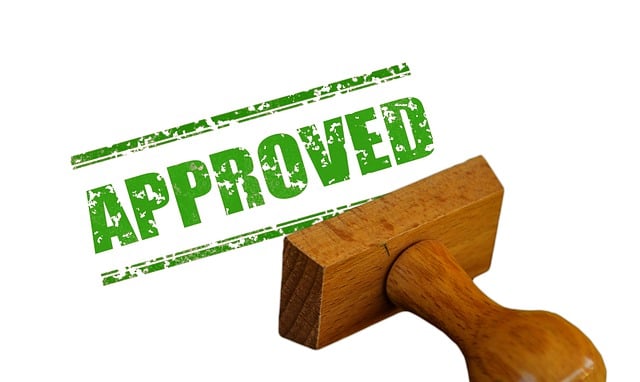Securing an equipment loan requires understanding and fulfilling strict credit requirements. Lenders assess your business's financial health through comprehensive financial statements and detailed documentation like tax returns and bank statements. To improve eligibility, maintain accurate records, demonstrate responsible borrowing behavior, and address any credit report issues. By meeting these criteria and following application tips, you can enhance your chances of loan approval and access necessary funding for equipment purchases or upgrades.
- Understanding Credit Requirements for Equipment Loan Approval
- The Role of Financial Statements in Loan Approval Process
- Essential Documentation Needed for Equipment Loan Applications
- Strategies to Improve Eligibility and Increase Approval Chances
- Practical Tips for Completing and Submitting a Successful Loan Application
- Overcoming Common Barriers: A Comprehensive Guide
Understanding Credit Requirements for Equipment Loan Approval

Understanding Credit Requirements for Equipment Loan Approval is a pivotal step in ensuring your loan application shines. Lenders carefully assess financial statements to gauge your creditworthiness, so it’s essential to present accurate and up-to-date information. This includes revenue, expenses, assets, and liabilities—a comprehensive view of your business’s financial health.
To improve your eligibility, ensure you gather the necessary documentation beforehand. This may include tax returns, bank statements, and detailed descriptions of any existing loans or debts. Additionally, loan application tips suggest demonstrating a solid track record of timely payments on previous loans or leases. Showing responsible borrowing behavior significantly boosts your chances of securing approval for the equipment loan you need.
The Role of Financial Statements in Loan Approval Process

Financial statements play a pivotal role in the equipment loan approval process. Lenders carefully review these documents to assess an applicant’s financial health, creditworthiness, and ability to repay the loan. Comprehensive financial statements, including income statements, balance sheets, and cash flow statements, provide insights into the borrower’s past performance, current stability, and future prospects. This information is crucial for lenders to evaluate the risk associated with lending money and determine the appropriate credit requirements.
When applying for an equipment loan, ensuring your financial statements are accurate, up-to-date, and well-organized is essential. Lenders require specific documentation, such as tax returns, bank statements, and business licenses, to verify your eligibility. By improving your financial statements and providing all the necessary documentation, you can increase your chances of loan approval and gain access to funds needed for equipment purchases or upgrades, ultimately enhancing your business’s operational capabilities.
Essential Documentation Needed for Equipment Loan Applications

When applying for an equipment loan, having the right documentation is paramount to a smooth process and increasing your chances of approval. Lenders will require specific financial records to assess your creditworthiness and eligibility for the loan. These documents offer a transparent view of your business’s financial health, which is crucial for meeting strict credit requirements.
Key pieces of documentation include recent financial statements, such as balance sheets, income statements, and cash flow projections. These provide insights into your company’s revenue, expenses, and overall profitability. Additionally, lenders may request tax returns, business plans, and details of any existing loans or lines of credit. Ensuring these documents are up-to-date and accurate is essential for a successful loan application. Tips for preparation include organizing financial records in advance, seeking professional help if needed, and ensuring all information reflects your current financial standing to aid in eligibility improvement.
Strategies to Improve Eligibility and Increase Approval Chances

To improve your chances of getting approved for an equipment loan, start by understanding and meeting the credit requirements set by lenders. A strong credit history and score are key indicators of reliability in the eyes of lenders. Regularly reviewing and maintaining accurate financial statements can significantly boost your eligibility. Ensure you include all relevant income sources and expenses to give a clear picture of your financial health.
Additionally, gathering and providing comprehensive documentation is crucial. This includes tax returns, business permits, and any other official papers that validate your identity and business status. Demonstrating responsible borrowing practices through prior loan history or strong personal guarantees can also enhance your application. Before submitting a loan application, familiarize yourself with the requirements and follow these loan application tips to increase your approval chances.
Practical Tips for Completing and Submitting a Successful Loan Application

Completing and submitting a successful loan application is crucial for securing equipment financing. First, gather all the required documentation, including financial statements, tax returns, and business licenses. These documents provide lenders with a clear picture of your business’s financial health and eligibility for the loan.
Next, ensure you meet the credit requirements by maintaining a strong credit score. Lenders often refer to credit reports and scores to assess risk. You can improve your chances of loan approval by making timely payments on existing debts, keeping credit utilization low, and regularly reviewing your credit report for errors. Additionally, provide detailed explanations for any adverse credit entries and demonstrate how you’ve addressed them, such as through debt repayment plans or improved financial management strategies.
Overcoming Common Barriers: A Comprehensive Guide

Overcoming common barriers to equipment loan approval involves a strategic approach where borrowers can enhance their position significantly. One of the primary obstacles is often related to credit requirements, with lenders scrutinizing financial statements and seeking evidence of stable income and good credit history. To improve eligibility, individuals must ensure they provide comprehensive documentation needed, including tax returns, bank statements, and business plans for self-employed borrowers.
Loan applications can be strengthened through meticulous preparation. This includes presenting clear and organized financial records, demonstrating a solid repayment capability, and addressing any red flags in one’s credit report. Following loan application tips such as maintaining accurate books, improving credit score, and offering collateral where possible can substantially increase the chances of approval.














